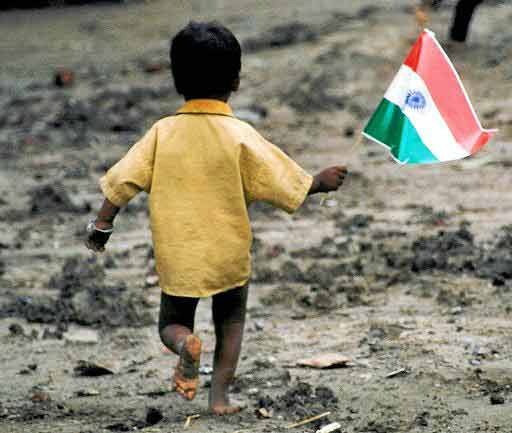
The wait is finally over. India and its ever powerful politicians and bureaucrats finally woke up to the urgent need of passing a bill which makes primary education for all citizens an irrevocable right. "Right to education", as it is called, makes primary education free, compulsory and with the quality of highest order to all children between the age group of 6-14 years.This is one of Prime Minister Dr.Manmohan Singh's ambitious and visionary projects. Kapil Sibal, the HRD minister of the newly elected UPA government, called it the most important bill that has been passed in independent India. Sure, that might be true, but the following question that would haunt every Indian is "Why so late? What have they been doing for 62 years ?".
We will deal with the three mantras that this bill has formed around: free,compulsory and quality education.First of all about the "free education" clause.Its a shame that people in India will take up their own child's education seriously only if its made free. Many would argue that acute poverty in rural India makes it necessary for making atleast the primary education "free". After all, the government also has a responsibility towards its children. But you may not have an effective implementation of this "education for all" project without the proper engagement of the parents who are an equal stakeholders in the child's physical and mental growth. They must have the ambition and not just "wishful thinking",an equal responsibilty towards the education of their child. This ambition and desire of the parents will go a long way in vigilant and efficient implementation of this project. Only then, governments can be made accountable for their actions in making every Indian educated. So, the word "free" doesnot mean parents can just wash their hands off from their wards education believing the government will do everything. A careful folllow-up and scrutiny of their child's performance will eventually help only the child's education.
The second clause is "compulsory education". This perhaps can be effectively implemented by far reaching campaigns making the people realise the importance of education of their child. I am sure many in rural village India wouldn't have known such a bill is in place and that their children can have quality and free education.The finer points of the bill and the government's arduous actions should be highlighted to the genaral public. This may increase awareness among public and eventually the enrolment in primary schools will also increase many fold.
Next is "qualty education". One of the main reasons why average enrolment in government schools is low is because of quality. The main problem being inadequate infrastructure and student-teacher ratio being very less. The government has made plans to build new schools in every panchayat but it needs to be speeded up and they must be expedited to a much earlier time frame. But these things cannot be done over night. So, the rule which makes it compulsory that atleast 25% of overall intake must be allocated for children below poverty line in private schools makes lot of sense. Its a responsibility that private schools must not shy away from.
Another important issue is the student-teacher ratio. Ideally every 40 students must have one teacher.So, new teachers with proper training must be recruited and the old teachers must also be trained which is a necessity in this changing world. Its beleived that of the nealy 1,00,000 government teachers, 25% are absent or not available for work at any given point of time. This must be done away with. Stricter laws which calls for well trained and duty-bound teachers should be in place. Non-performing teachers should be shown the door.
Teaching is an important tool which will shape a country's future for the best. At present, teaching is not a career option for young Indians. This can be changed with hefty pay packages which could woo the best young minds for this important profession. Young and bright minds in teaching and research can ignite thousand more minds of young children within the age group of 5-15. Other ambitious professions might keep you and your loved ones happy and cheerful. But teaching will have a multiplier effect lighting up thousands of lives. So, the government must make it attractive for young indians to take up jobs in education.
So, the passing of the "Right to education" is just a first step. To experience the fruits of this project, effective and vigilant implementation is very much a neccesity. This will go a long way in making India an "enlightened country" ready to surge ahead to its righful place in world's history.